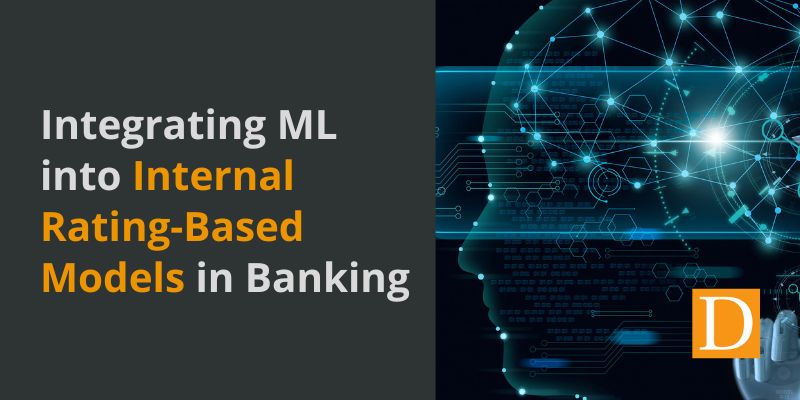Machine Learning in Banking IRB Models
Machine learning (ML) has emerged as a powerful tool in various fields, including credit risk assessment. ML models have shown superior predictive capabilities compared to traditional regression models, thanks to advancements in data availability, storage capacity, and computational power. However, despite their effectiveness, ML models have yet to be widely integrated into internal rating-based (IRB) modelling methodologies used by banks.
Here are some of the key reasons behind the limited use of ML in IRB modelling, the potential changes on the horizon, and the key stakeholders involved in driving this transformation. Additionally, we discuss the potential impact of incorporating ML into IRB modelling on hiring, particularly the need for individuals with expertise in both ML and regulatory compliance to navigate this evolving landscape.
Key Points:
- Machine learning (ML) models have shown superior predictive power in credit risk compared to traditional regression models.
- ML models have not been widely integrated into internal rating-based (IRB) modelling methodologies used by banks due to unchanged regulatory capital calculation methods and the complexity of ML models.
- The European Banking Authority (EBA) recognises the potential of ML in IRB modelling and is considering providing recommendations for its appropriate use.
- ML is currently used in credit risk for credit approval, credit monitoring, and collections, but its use in other regulatory areas is limited.
- ML has the potential to improve risk differentiation, risk quantification, and data collection and preparation in IRB models.
- Challenges to implementing ML in CRR-compliant (Capital Requirements Regulation) IRB models include interpreting complex models, incorporating human judgment, documentation, plausibility of estimates, historical observation period, validation, governance, and implementation process.
- The EBA has provided principles for the prudent use of ML in IRB modelling, emphasising knowledge of the model, avoiding unnecessary complexity, ensuring interpretation and understanding, considering human judgment, stable parameters, reliable validation, and governance.
- Recent research revealed that there is limited current use of ML in IRB modelling, but a desire to use it with explicit regulatory guidelines and certainty in the supervisory process.
- Some firms plan to outsource ML modelling for IRB, and challenges regarding internal user acceptance of ML models vary.
- ML is considered suitable for various areas within credit risk, such as loan origination, monitoring, and early warning systems.
- The limited use of ML in IRB modelling is mainly due to uncertainty in the supervisory process, and the EBA’s discussion paper and prospective recommendations aim to bridge this gap.
Machine learning models have demonstrated their effectiveness in credit risk, but their integration into internal rating-based models has been limited. The European Banking Authority is considering recommendations for the appropriate use of machine learning in IRB modelling. While challenges exist, the potential benefits include improved risk differentiation and quantification. The impact on hiring will likely involve a need for individuals with expertise in both machine learning and regulatory compliance to implement and oversee the use of ML in IRB modelling.
It is without doubt that technology drives the demand for new and different skill sets. As Quant Risk hiring market experts, we have senior experienced consultants that can help you navigate the market.
We are committed to helping your organisation thrive in this evolving landscape. Contact Peter or Adnan today, and let our experts advise you on the current market and how we can support your Risk permanent and interim hiring needs.
Peter Umesi
Director, Head of Risk Analytics, EMEA, Danos Group.
T: +44 (0) 20 7010 1155 E: pumesi@danosassociates.com
Adnan Maddix
Managing Director, Head of Asia, Danos Group.
T: +(65) 6950 4505 E: adnanmaddix@danosassociates.com

